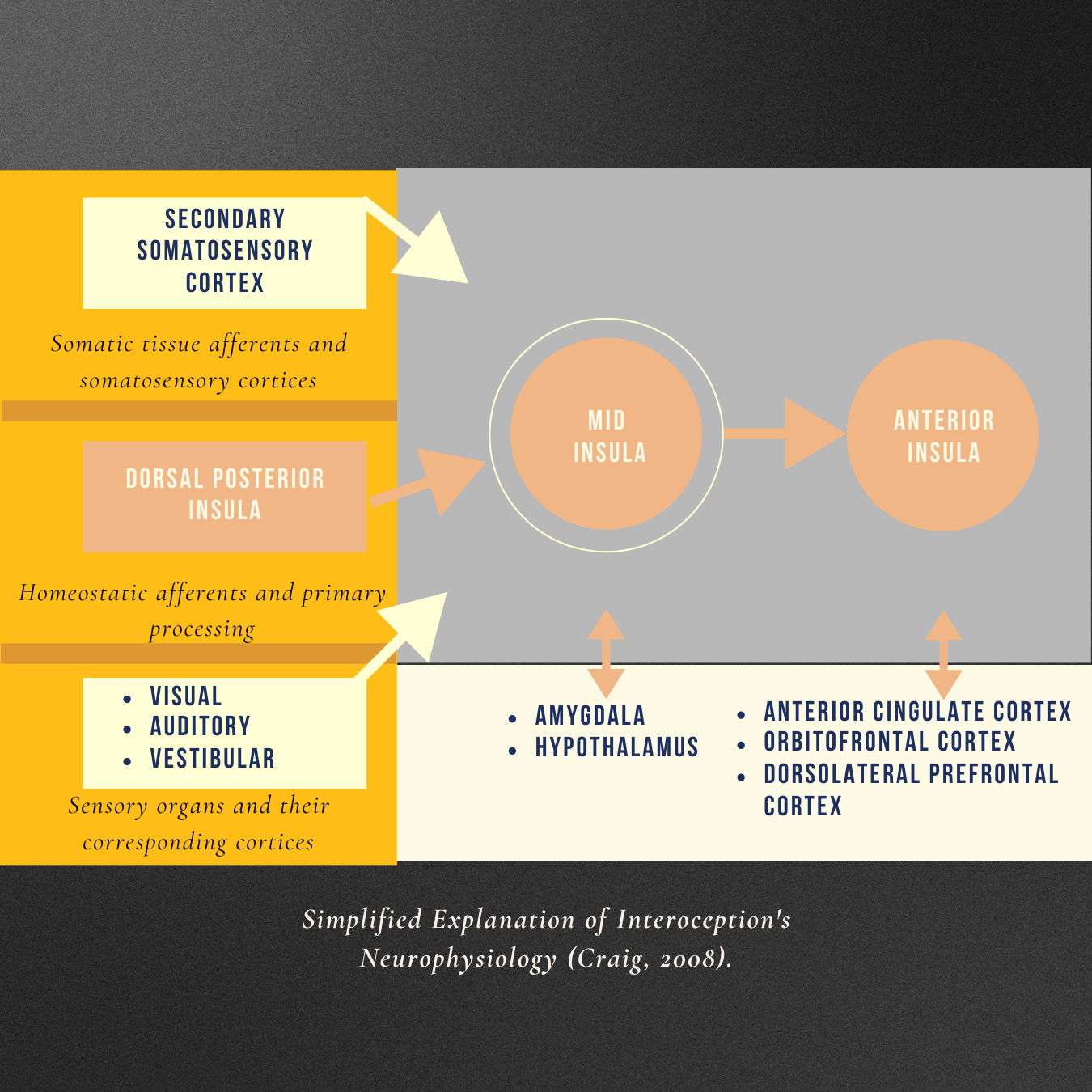Interoception
Interoception is the process of the organism that enables the perception, interpretation, integration and regulation of internal states (Chen et al., 2021). Monitoring internal signals is of distinct importance as it allows us to predict future body states and provides information about self-regulatory actions (Drane et al., 2021).
Individuals differ in their degree of sensitivity to interoceptive signals from the body, as bodily changes and their interoceptive signalling help shape emotions and behaviour, and "emotional styles" differ between individuals. To quantify individual differences in interoceptive abilities, heart rate detection tasks are very common, where individuals are asked to detect their resting heart rate by counting, tapping, or judging the timing of their heart rate relative to an external stimulus (Critchley and Garfinkel, 2017). The degree of correspondence between the heart rate and its subjective perception represents a relatively stable measure of interoceptive sensitivity (Ricciardi et al, 2016).
While interoceptive processes are poorly studied in the FND population, there are a few studies that have shown impaired interoceptive sensitivity during a heart rate detection task in FND patients (Koreki et al., 2020; Ricciardi et al., 2016)
Thus, the findings to date suggest that FND patients may have disturbed internal body models, but as mentioned above, our knowledge of interoceptive processes in the FND population is still limited.
-
Craig, A. D. (2008). Interoception and emotion: a neuroanatomical perspective. Handbook of emotions, 3(602), 272-88.
Critchley, H. D., and Garfinkel, S. N. (2017). Interoception and emotion. Current opinion in psychology, 17, 7-14.
Perez, D. L., Nicholson, T. R., Asadi-Pooya, A. A., Bègue, I., Butler, M., Carson, A. J., ... and Aybek, S. (2021). Neuroimaging in functional neurological disorder: state of the field and research agenda. NeuroImage: Clinical, 30, 102623.


